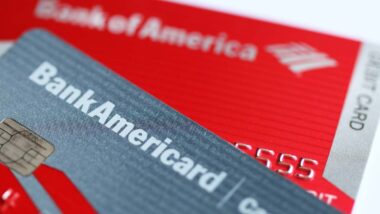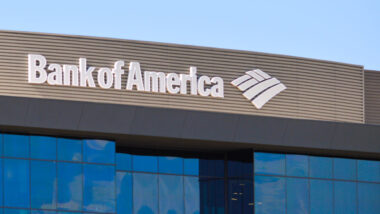Top Class Actions’s website and social media posts use affiliate links. If you make a purchase using such links, we may receive a commission, but it will not result in any additional charges to you. Please review our Affiliate Link Disclosure for more information.

Excessive credit card fees rule overview:
- Who: The Consumer Financial Protection Bureau (CFPB) proposed a new rule aimed at curbing excessive credit card late fees.
- Why: The CFPB said credit card late fees cost American families around $12 billion every year.
- Where: The rule would take effect nationwide.
The Consumer Financial Protection Bureau (CFPB) proposed a new rule aimed at curbing excessive credit card late fees, which the watchdog says cost American families around $12 billion each year.
The CFPB says in a news release the proposed rule would “help ensure that over the top late fee amounts are illegal, and speculated it could reduce annual late fee charges by $9 billion.”
“Today’s proposed rule seeks to save families billions of dollars and ensure the credit card market is fair and competitive,” CFPB Director Rohit Chopra says in the release.
The CFPB’s proposed rule would amend regulations implemented in the Credit Card Accountability Responsibility and Disclosure Act of 2009 and ensure any late fees are “reasonable and proportional” to costs incurred by issuers.
Congress previously banned excessive late fees
While Congress previously banned excessive fees, Chopra says, “companies have exploited a regulatory loophole that has allowed them to escape scrutiny for charging an otherwise illegal junk fee.”
“When someone misses a payment due date, even if they paid a few hours after the deadline, the cardholder may be hit with an exorbitant late fee that far exceeds the credit card company’s costs to collect late payments,” the CFPB says.
In related news, a consumer filed a class action lawsuit against Capital One Financial Corp. last year, arguing the company used a bait-and-switch scheme to trick its customers into applying for a credit card.
Have you been charged excessive credit card fees? Let us know in the comments.
Don’t Miss Out!
Check out our list of Class Action Lawsuits and Class Action Settlements you may qualify to join!
Read About More Class Action Lawsuits & Class Action Settlements:















12 thoughts onConsumer financial watchdog proposes rule to curb excessive credit card late fees
I was charged nearly $40.00-$37.00, I believe by Capital One for a late fee-my payment was only like $40.00 (minimum amount)!!! C Not to mention that my Interest rate is about 28%!
Ridiculous-but then you’re STUCK cuz you ALWAYS OWE! I’m on Disability with limited income
Capital one will charge you a late fee if you pay on the date it’s due. (on time) but if you pay after 8pm on the date its due. they will a late fee. This is VERY EXCESSIVE, AND DOWN RIGHT GREEDY. Why and how can you charge a late fee when the consumer is paying on the date it’s due.